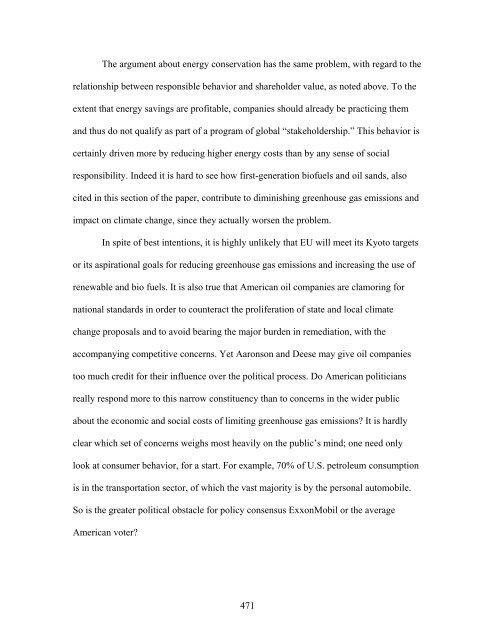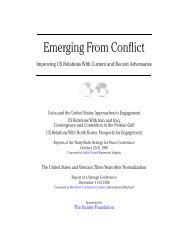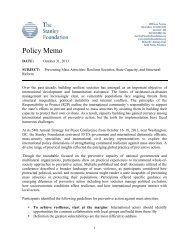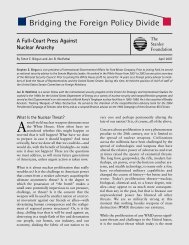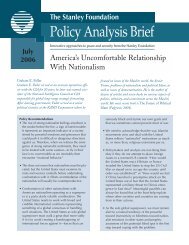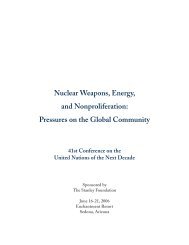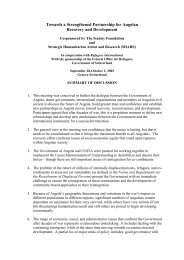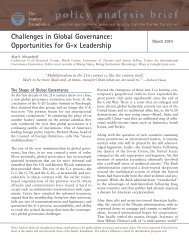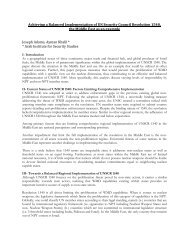444 By Susan Ariel Aaronson and David Deese With a reaction by ...
444 By Susan Ariel Aaronson and David Deese With a reaction by ...
444 By Susan Ariel Aaronson and David Deese With a reaction by ...
- No tags were found...
You also want an ePaper? Increase the reach of your titles
YUMPU automatically turns print PDFs into web optimized ePapers that Google loves.
The argument about energy conservation has the same problem, with regard to therelationship between responsible behavior <strong>and</strong> shareholder value, as noted above. To theextent that energy savings are profitable, companies should already be practicing them<strong>and</strong> thus do not qualify as part of a program of global “stakeholdership.” This behavior iscertainly driven more <strong>by</strong> reducing higher energy costs than <strong>by</strong> any sense of socialresponsibility. Indeed it is hard to see how first-generation biofuels <strong>and</strong> oil s<strong>and</strong>s, alsocited in this section of the paper, contribute to diminishing greenhouse gas emissions <strong>and</strong>impact on climate change, since they actually worsen the problem.In spite of best intentions, it is highly unlikely that EU will meet its Kyoto targetsor its aspirational goals for reducing greenhouse gas emissions <strong>and</strong> increasing the use ofrenewable <strong>and</strong> bio fuels. It is also true that American oil companies are clamoring fornational st<strong>and</strong>ards in order to counteract the proliferation of state <strong>and</strong> local climatechange proposals <strong>and</strong> to avoid bearing the major burden in remediation, with theaccompanying competitive concerns. Yet <strong>Aaronson</strong> <strong>and</strong> <strong>Deese</strong> may give oil companiestoo much credit for their influence over the political process. Do American politiciansreally respond more to this narrow constituency than to concerns in the wider publicabout the economic <strong>and</strong> social costs of limiting greenhouse gas emissions? It is hardlyclear which set of concerns weighs most heavily on the public’s mind; one need onlylook at consumer behavior, for a start. For example, 70% of U.S. petroleum consumptionis in the transportation sector, of which the vast majority is <strong>by</strong> the personal automobile.So is the greater political obstacle for policy consensus ExxonMobil or the averageAmerican voter?471


